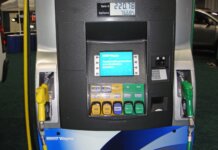Gov. Kate Brown, D-Ore., has signed into law S.B.98, creating a path for renewable natural gas (RNG) to become an increasing part of the state’s energy supply.
NW Natural, a natural gas service company serving Oregon and Washington, worked with legislators to propose S.B.98 to enable utilities to acquire RNG on behalf of Oregon customers. The bill outlines goals for adding as much as 30% RNG into the state’s pipeline system. There will be limits on the total amount paid for RNG that is overseen by regulators, protecting utilities and ratepayers from excessive costs as the market develops, explains NW Natural.
“Oregon has long been a place for innovation in environmental protections, and this legislation continues that tradition,” says Brown. “Allowing our natural gas utilities to acquire a renewable product for their customers brings us one step closer to a clean energy future.”
“This is the first piece of legislation of its kind in the nation, and we couldn’t be more pleased to lead the way,” says David H. Anderson, president and CEO of NW Natural. “This is an important step in supporting our region’s move to more renewable energy, closing the loop on waste and investing in homegrown solutions that address climate change.”
The new law sets voluntary RNG goals for Oregon’s natural gas utilities. Additionally, it allows utility investment in the interconnection of RNG production; supports targets of 15% by 2030, 20% by 2035 and 30% by 2050; establishes an overall spending limit for RNG supply; and provides local communities with a potential revenue source to turn their waste into energy.
“S.B.98 is a groundbreaking piece of legislation,” says Nina Kapoor, director of state government affairs for the Coalition for Renewable Natural Gas (RNG Coalition). “Several states have advanced policies in recent years to support renewable natural gas; however, the Oregon law goes further than any other by setting clear goals for renewable natural gas procurement.”
NW Natural is working with the Metropolitan Wastewater Management Commission, a partnership of the cities of Eugene and Springfield and Lane County, to bring RNG into its system. It would be generated from methane produced during the wastewater treatment process.
The company is also working with the City of Portland’s Bureau of Environmental Services, the operator of Portland’s Columbia Boulevard Wastewater Treatment Plant. Some of the RNG generated there will be used as fuel for city vehicles, while the remainder will be injected into NW Natural’s system.
S.B.98 supports all forms of RNG, including renewable hydrogen, which is made from excess wind, solar and hydro power.







